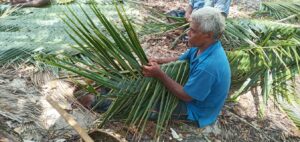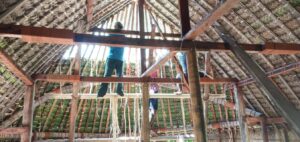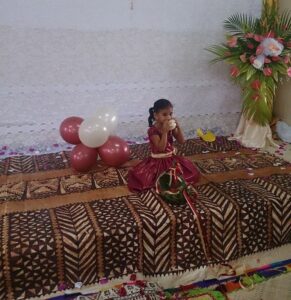
Coconut leaves woven for roofing purposes of a traditional Fijian home called the ‘bure’
Organic textiles are based on materials grown on organic farms, and manufactured without harmful chemicals.

Inside of a traditional ‘bure’
Organic textiles don’t contain allergenic, carcinogenic or toxic chemicals so benefits carry through from local wildlife, animals and people through to the culture of communities and the home environment where the end products are used.

Traditional tapa used at functions such as weddings
Tapa cloth is a popular organic material produced from the bark of paper mulberry tree and used in a range of decorative products and also clothing. Papua New Guinea, Tonga, Samoa and Fiji are some of the pacific nations that are noted for their use of Tapa.
The Marshall Islands, Cook Islands and many other pacific countries have highly developed designs for bags and fans both from natural palm and other leaves using traditional organic processing methods.